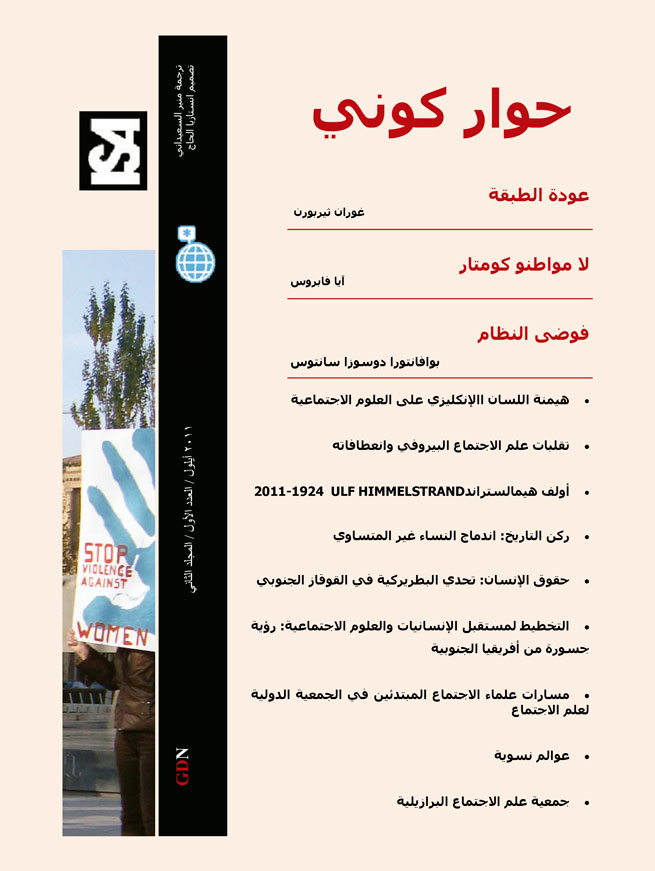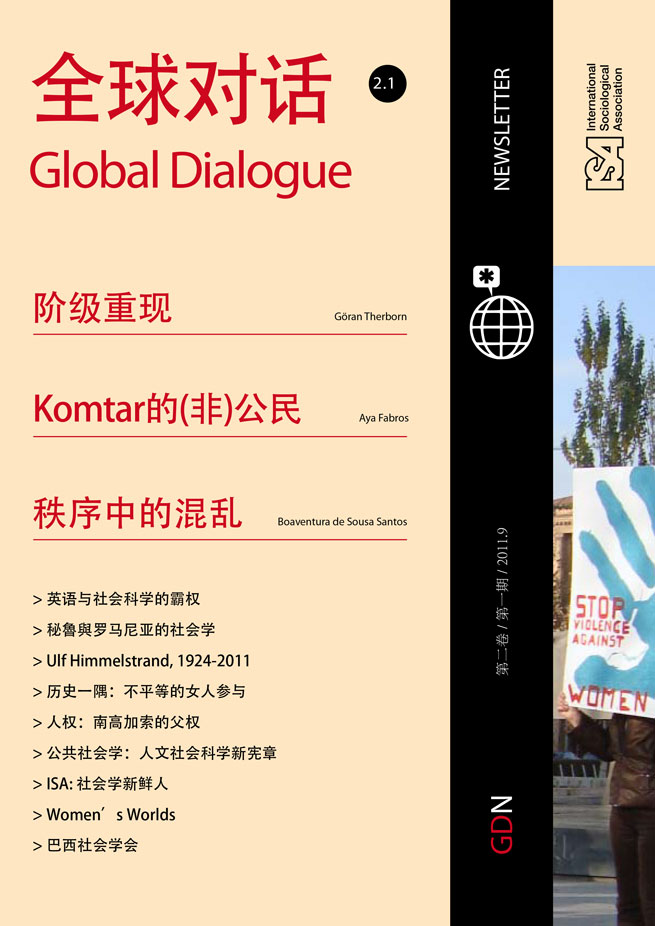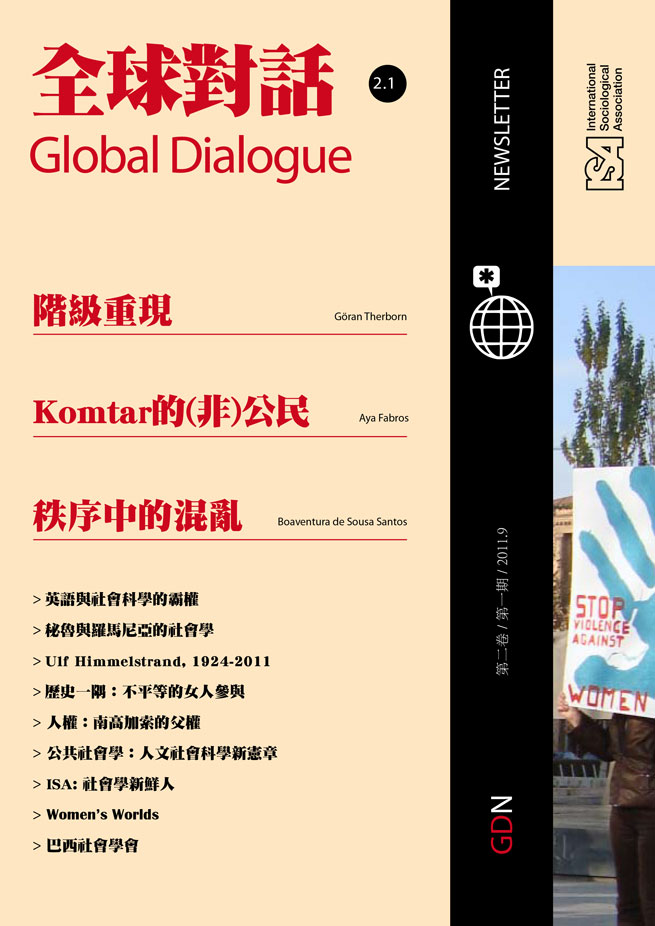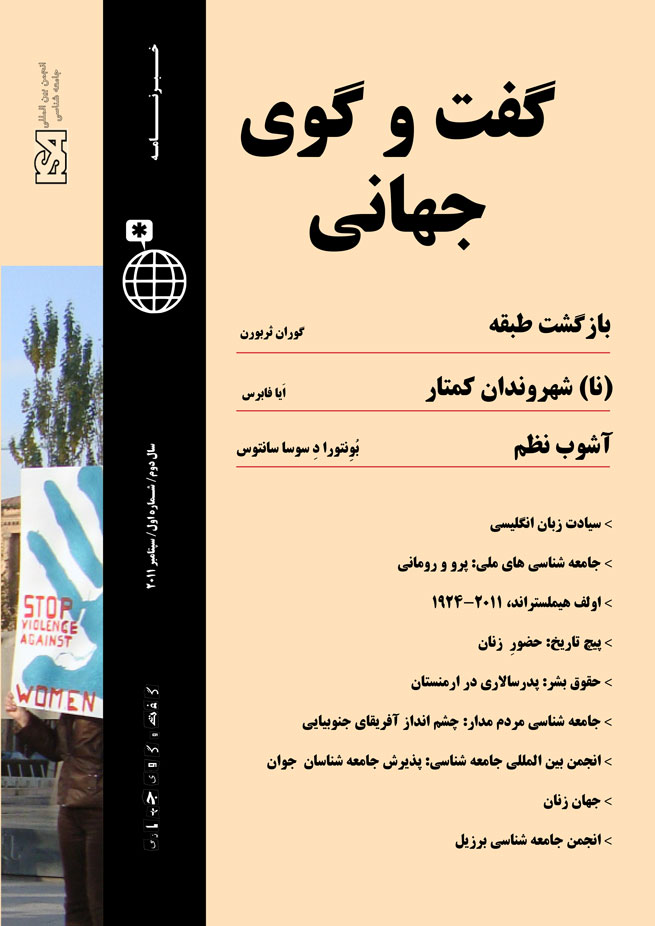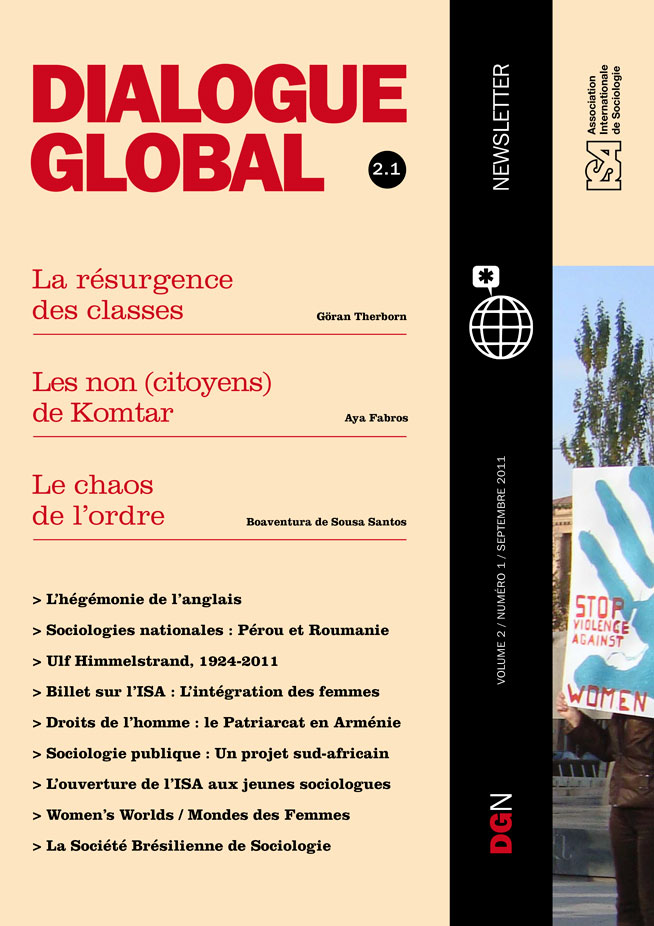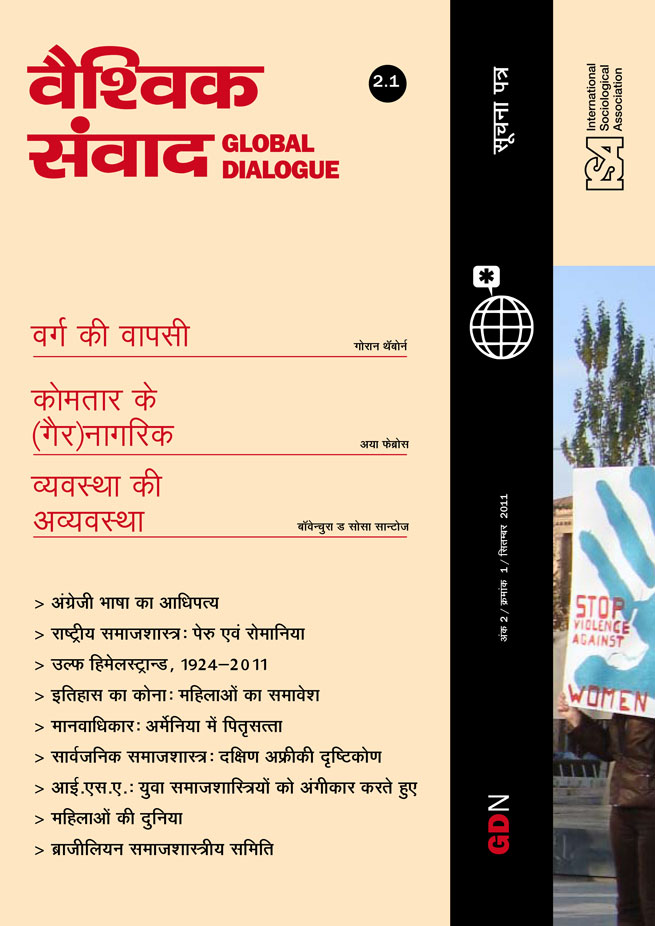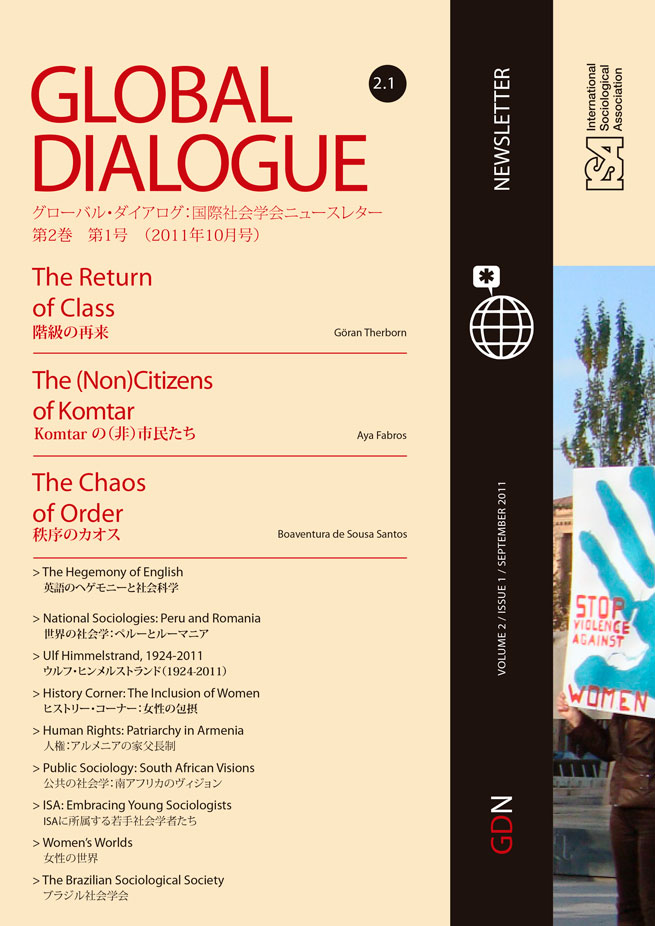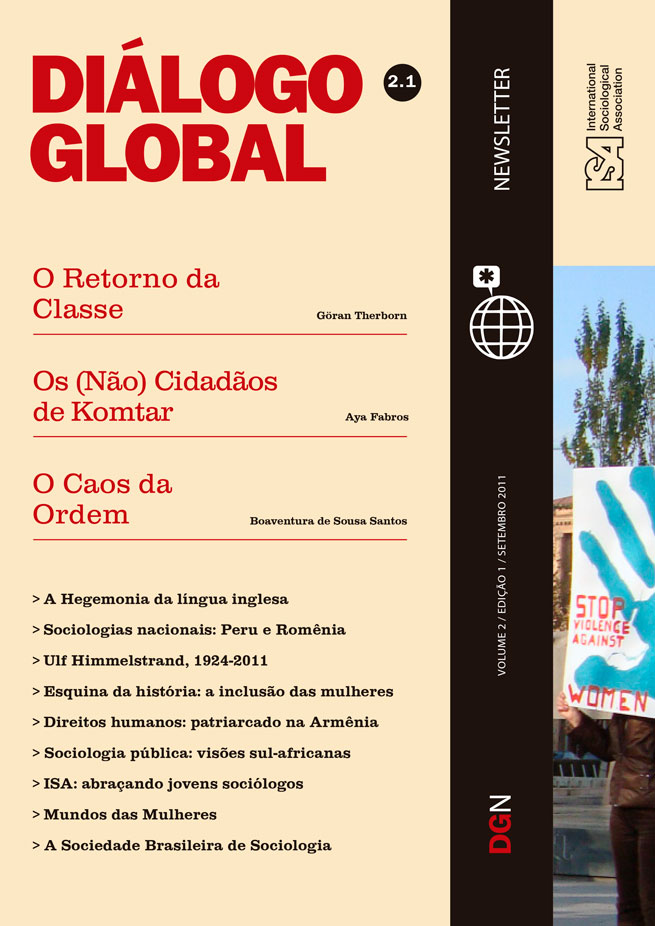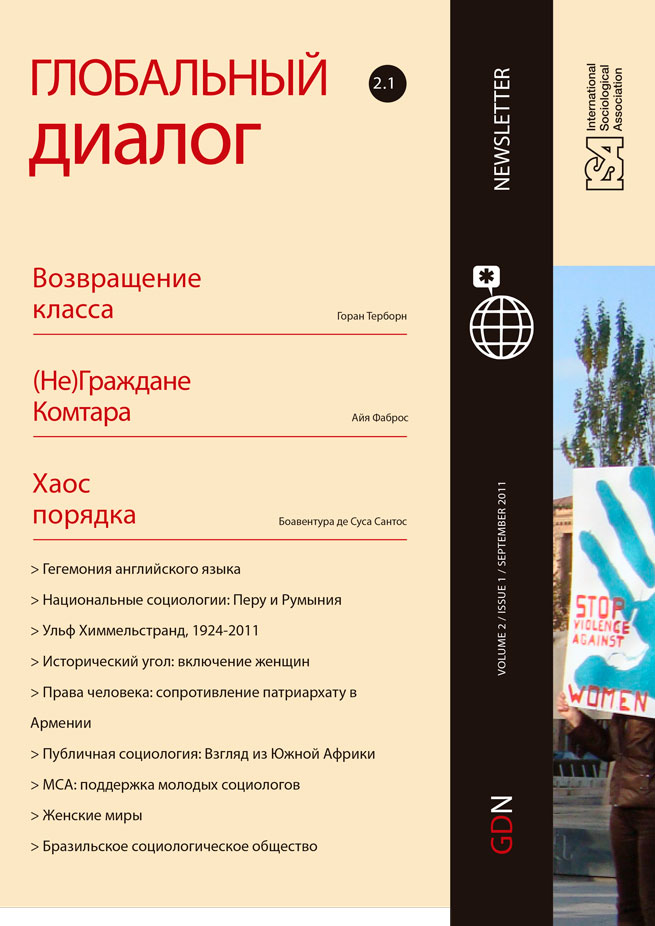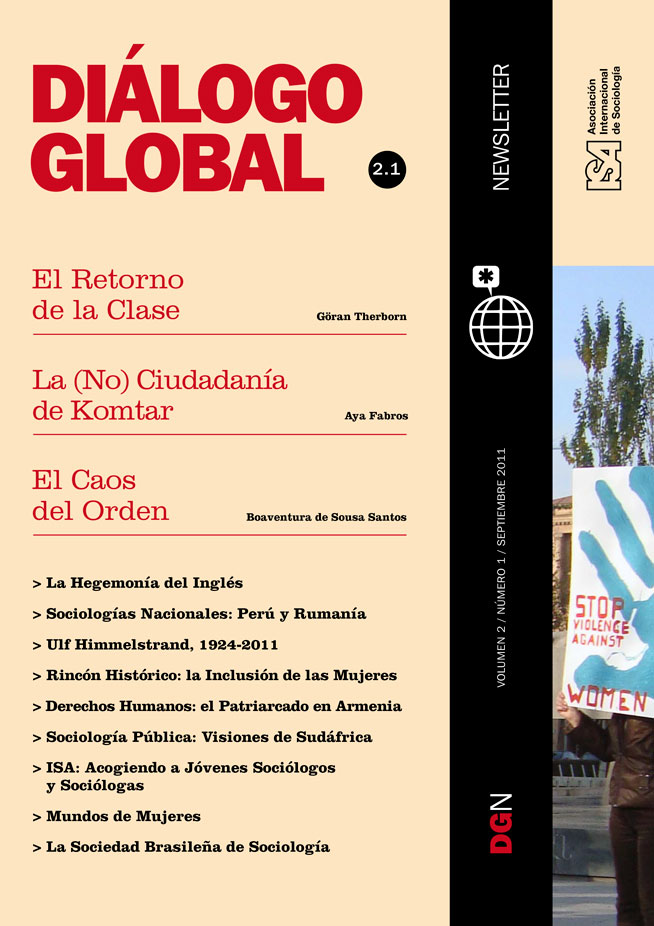The Chaos of Order
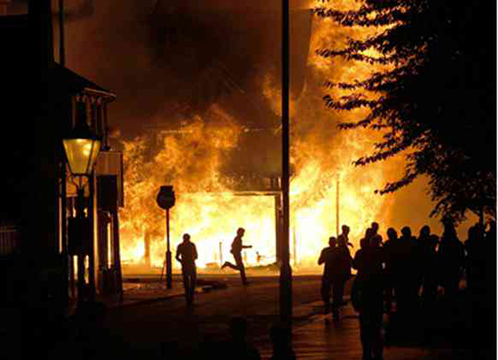
September 30, 2011
In spite of their specificity, the violent riots in London and other British cities should not be seen as an isolated phenomenon. They are a disturbing sign of our time. In contemporary societies a high inflammable fuel is flowing underneath our collective lives unsuspected of families, communities, social organizations, and politicians. When it rises to the surface, propelled by a spark-like incident, it may provoke a social fire of unimaginable proportions. Such fuel is made up of four components: endorsement of both social inequality and individualism, mercantilization of individual and collective life, racism renamed as tolerance, democracy high-jacked by the privileged elites followed by politics turned into management of the loot “legally” taken from the citizens and the unease it provokes. Each one of these components bears an internal contradiction. When they overlap, any incident may bring about an explosion.
Inequality and individualism
With neoliberalism, the brutal increase of inequality stopped being a problem to become the solution. The ostentation of the super-rich became proof of the success of a social model that condemns to pauperism the large majority of people, allegedly because they do not strive enough to succeed. This was only possible because individualism has become an absolute value which, paradoxically, must be lived as a utopia of equality, i.e., each one equally rescinding social solidarity, whether as its agents or beneficiaries. Such an individual only considers inequality to be a problem when it is adverse to him or her. When that is the case, it is considered unfair.
Mercantilization of life
Consumer society implies replacing relations between people by relations between people and things. Rather than fulfilling needs, consumer objects create them endlessly, personal investment in objects being as strong when they are possessed as when they are not. Shopping malls provide the ghostly vision of a network of social relations beginning and ending in objects. Capital, ever yearning for profitability, is now submitting to the law of the market goods that we have always considered too common (water, air) or too personal (privacy, political convictions) to be traded in the marketplace. Between believing that money is the universal mediator and believing that anything can be done to obtain it there is a smaller step than one suspects. The powerful make this step everyday and nothing happens to them. Seeing this, the destitute believe they can do the same – and end up in jail.
Tolerance’s Racism
The unrest in England had a racial dimension from the beginning. The same was true in 1981, as it was regarding the turmoil that shook Paris and other French cities in the fall of 2005. This is no coincidence; it rather reflects the colonial sociability which continues to prevail in our society long after the end of political colonialism. Racism is merely one among the components, since youngsters of different ethnicities have been involved in the riots. But it is an important component, because it adds corrosion of self-esteem to social exclusion. In other words, being less is worsened by having less. A young black person in our cities experiences daily a suspicion that persists regardless of what he or she is or does. Such suspicion is all the more poisonous by existing in a society distracted by official policies fighting discrimination and by the fake appearance of multiculturalism and the benevolence of tolerance. When everybody dismisses racism, victims of racism are termed racist for fighting against it.
Highjacking of democracy
What is there in common between the unrest in England and the destruction of the citizen’s welfare brought about by the austerity measures imposed by the rating agencies and the financial markets? They both submit the democratic order to a stress test of uncertain outcome. The rioting youngsters are criminals, but we are certainly not facing here “pure and simple criminality,” as Prime Minister David Cameron said. We are facing a violent, political denunciation of a social and political model that finds resources to bail out banks but not to bail out the youth faced with no future worthy of the name, young people stuck in the nightmare of an increasingly expensive education which may turn out to be irrelevant, given the rise of unemployment. These are youngsters abandoned in communities, which anti-social public policies have turned into training camps for wrath, anomie, and revolt.
Between the neoliberal credo and the urban rioters there is a fearful symmetry. Social indifference, arrogance, unfair sharing of sacrifices are sowing chaos, violence, and fear. Tomorrow, the sowers, taking offence, will argue that what they sowed had nothing to do with the chaos, violence, and fear haunting our cities today. The true disorderly are in power; soon they will be emulated by those who have no power, only to bring order back to political power.
Boaventura de Sousa Santos, School of Economics, University of Coimbra, Portugal, University of Wisconsin-Madison Law School, USA and Member of the Program Committee for the ISA World Congress of Sociology in Yokohama

